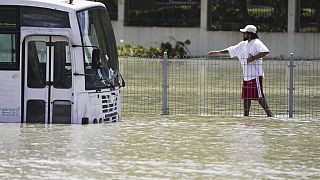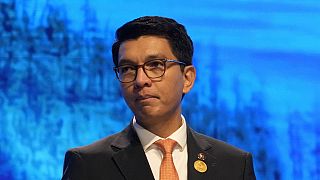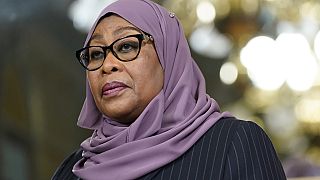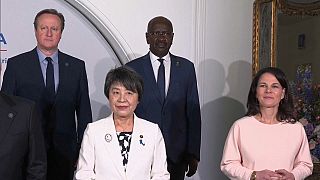Madagascar
Over 50 years since a center was set up, leprosy patients still face stigma in Madagascar. By the time many go for treatment, it is often too late!
Marline Harisoa arrived at the Marana Leprosy Treatment Center in Fianarantsoa, Madagascar two years ago. She did not received any visits from her family from then on. After her parents died, her siblings drove her out of their home.
“What bothered me most was not the disease but the fact that they rejected me,” Marline Harisoa recounted as she sat squarely in the center’s large compound knitting slowly.
“It is a mixture of shame, misunderstanding and fear! I can’t go in, or if it happens, they hurry to wash the pillow or towel right after I leave. It’s my family, who have the same blood as me, that do this to me,” she added.
Since the loss of her parents, the only family for Harisoa has been the nuns who run the centre as well as other residents.
Leprosy is not easily contagious; it requires repeated and prolonged contact with affected people to catch it.
In the 1960s, the leprosy centre was built to welcome relatives and fight against the isolation of patients. But even today, half of their 40 patients are rejected by their families.
“We have grandfathers here, for example, who never have visitors and they ask to stay here for the rest of their lives,” said Sr. Sabine Ramasinoro, the director of the Marana Leprosy Treatment Center.
However, young people are prepared to return to their families and villages as soon as they arrive at the hospital. Sr. Sabine says it’s because they still have a good chance of rebuilding their lives.
Le Zafy a farmer and father of three is among the lucky few, thanks to support by his family. For over 6 months since he started treatment, he was able to live in the village with his wife and children.
“My father’s family pushed me to come here before it was too late since we had leprosy cases in the family. I didn’t do the hard part; I was afraid I’d be amputated!” he confesses and laughs coyly after the acknowledgment.
Patients often consult too late. This is caused by shame, poverty, remoteness or lack of hospitals. And the consequences are irreversible: in Madagascar, 2 out of 10 leprosy patients are disabled.












01:10
Cyclone Gamane hits Madagascar, kills at least 11, displaces thousands
01:08
Ramaphosa says he will sign the National Health Insurance bill into law
01:53
Madagascar celebrated at London orchid festival
02:40
Bridging Gaps in healthcare for Kenyan families
Go to video
President Ramaphosa not ill but at home - spokesperson
Go to video
Rwanda suspends Kenyan drug due to safety concerns